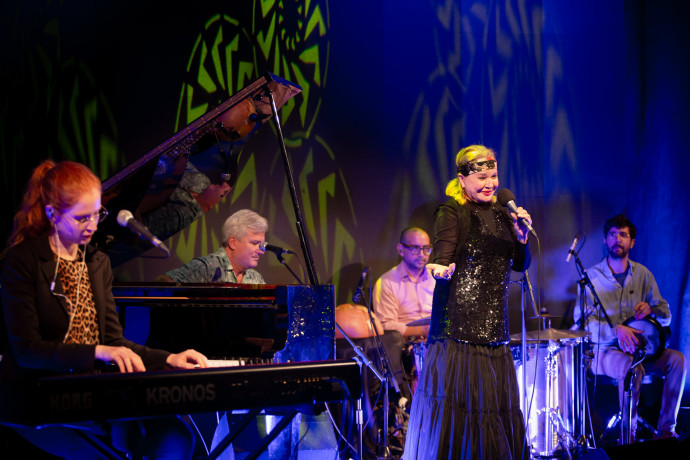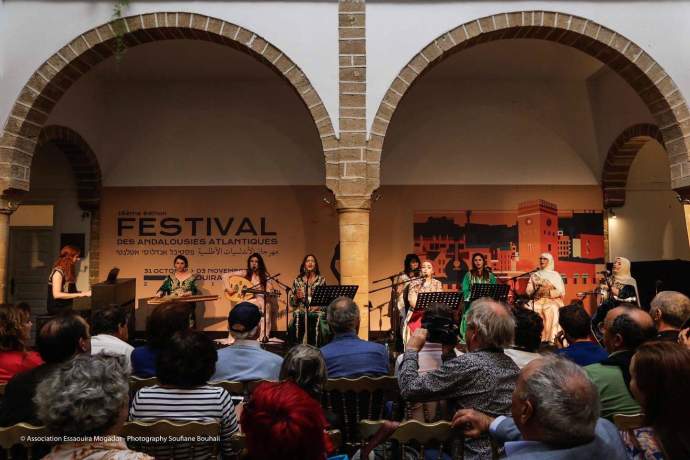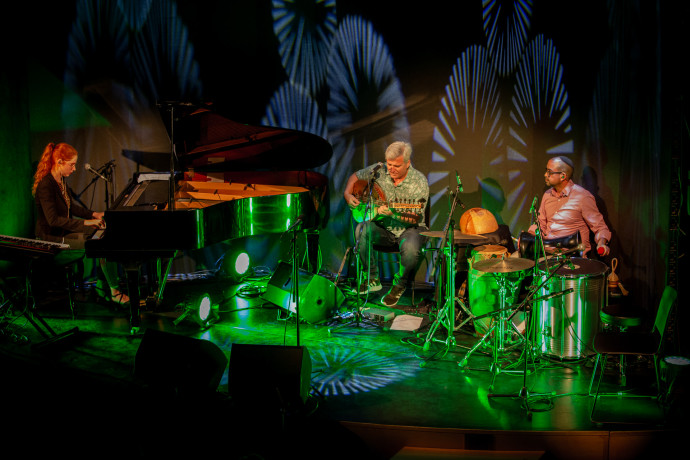The musical worlds of Darya Mosenzon – from classical music to the sounds of Morocco and Algeria
LIVE: Israeli pianist Darya Mosenzon in conversation with Yotam Ziv.
Tel Aviv-based pianist Darya Mosenzon began her career as a classical pianist, but today is best- known for her unique interpretations of Moroccan and Algerian music. In a one-on-one interview with jazz journalist and radio host Yotam Ziv, presented by the Cultural Diplomacy Bureau of the Israeli Ministry of Foreign Affairs and the Jerusalem Post, Mosenzon explains her musical beginnings as a five-year-old, from her interest in classical music following in the footsteps of her maternal grandmother, a classical pianist, to jazz, and her eventual pursuit of Moroccan and Algerian music, for which she is best-known today.
“I still play classical music to this day, [but] a lot of things that were missing for me where I was, I found in the North African music that I play today," says Mosenzon. "I feel very blessed to have come into a musical space where I feel the audience is very generous: they are very open-hearted and very open-minded. There’s a lot of freedom for the performer and of course for me as a composer as well”.
She studied North African music for several years with teachers in Israel and Morocco, including Elad Levi, Omri Mor, Mehdi Chaachoo, and Amin Chaachoo, and says that the North African style of music allows greater freedom of expression to performers and composers.
Mosenzon recently returned from Morocco, where she performed her combination of traditional music translated into solo piano and her own original music, which has been influenced by North African music and the music of her youth, including both classical and jazz music.
She explains that North African music places the audience within the musical experience together with the performer. “The audience takes part in the music,” she says. “It’s a wonderful experience of making music together.”
“When one plays classical music, usually they’re not asked about their background as much as I am when I play North African music. That is, if a pianist of Moroccan origin would choose to play Chopin, that would be considered just a normal thing, because Chopin is an amazing composer and it’s obvious to everyone that anyone should want to play his music. I think the opposite should be obvious as well.”
Mosenzon’s debut trio album will be released this fall and will feature five tracks, four of which consist of original music, and a fifth that is an ancient Moroccan tune. Originally sung with lyrics in Hebrew and Arabic, the album version will be Mosenzon's own arrangement for piano and percussion.




